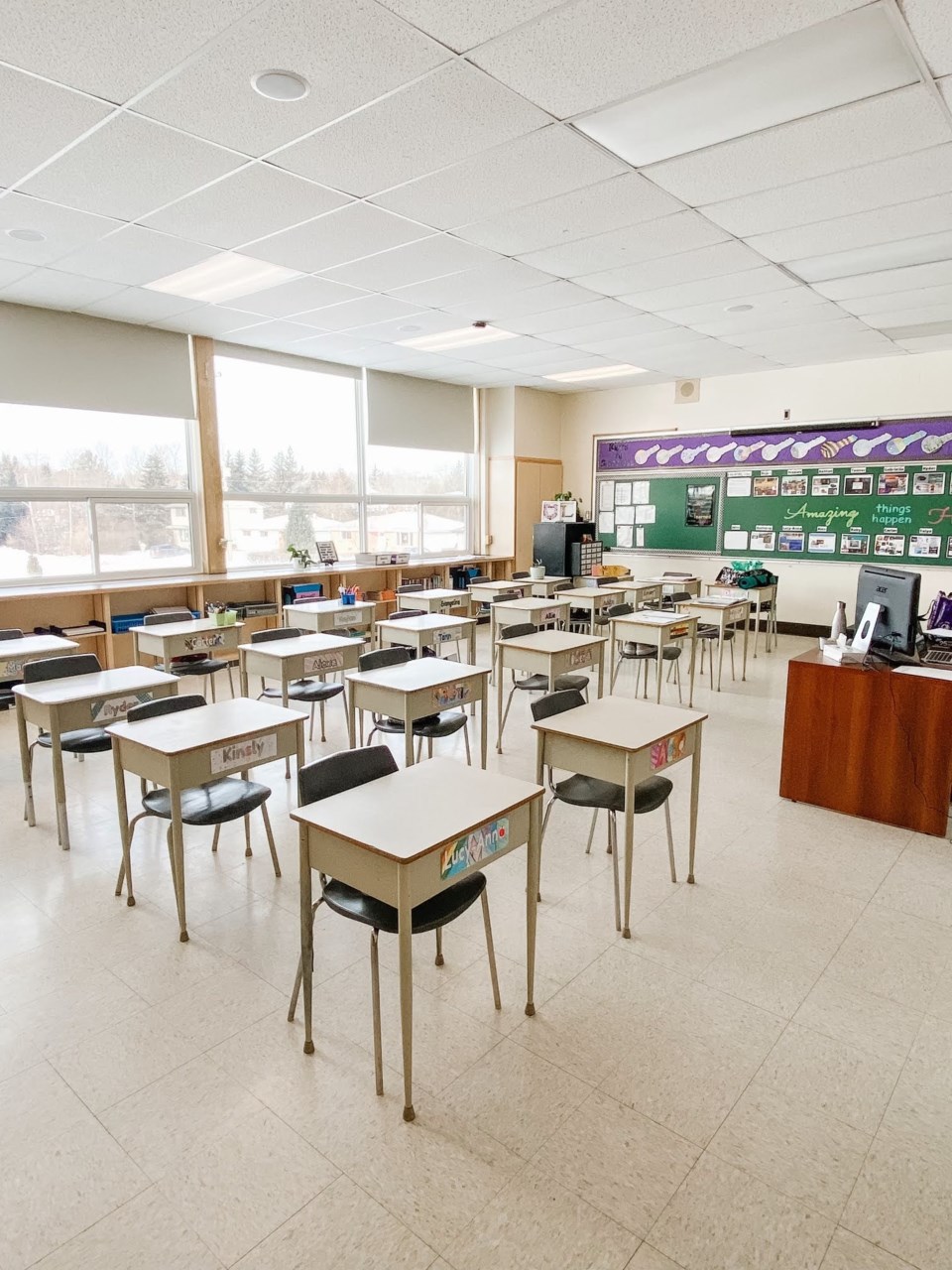THUNDER BAY — A vote could be coming by the middle of September as to whether most elementary and secondary teachers across the province will strike.
Members are calling for the vote in an effort to push stalled bargaining with the provincial government forward.
Some unions within the education sector have been without a contract since August 2022.
Dave Paddington, the local president of the Elementary Teachers Federation of Ontario, says a strike vote won’t necessarily mean a walkout of educators.
“I don't think that things have been going especially well at the provincial bargaining table,” Paddington said.
“The potential for job action [could look like] the elimination of some paperwork. One year, the report cards just had marks provided and no comments. Work to rule has [also] happened in the past. Of course, the option of actually going on the streets is [there], but I don't anticipate anything like that would happen imminently.”
In a statement, a spokesperson for Education Minister Stephen Lecce calls the threats of a strike “unfair and unnecessary”.
“Our government has been bargaining in good faith, meeting over 170 times with all education unions, and are focused on securing a deal that keeps kids in class, provides parents with stability, and treats educators fairly,” the statement said.
“After private mediation was rejected by teachers’ unions to reach deals, we are available to meet every day to negotiate a deal that keeps students in class and improves the outcomes of students. I believe by staying at the table, we can and will reach a deal that keeps kids learning in classrooms where they belong.”
Paddington represents approximately 400 workers within the Lakehead Elementary Teachers of Ontario, who have indicated to him that they are feeling the strains of the job.
“I think that provincially and locally violence in the schools [and in the] classrooms have really increased post pandemic,” Paddington said. “Student behaviours have gotten more extreme since [the COVID-19] pandemic, and I don't really understand the reason for that.”
“So you're working in a classroom [that could have] 30 or more students. And you've got a couple of students who are having significant mental health issues or significant violence in the classroom issues; trashing a classroom, for example, having a student throwing desks. These things happen in schools.”
Thunder Bay Superior North MPP Lise Vaugeois hadn’t been specifically briefed on the situation, but did stress there’s nothing more important to her than a well-funded public education system.
“We know [that] the class sizes are too large. There are not enough supports [and] educational assistance there for the children who need it. We also known that there are a lot of children with autism who are being moved into the public system at this point and that there aren't necessarily the supports there.” Vaugeois said. “And then [there are] kids [who wind] up having to stay home, [which means their] parents can't go to work. So, there's a domino effect.”
Paddington said there will be a meeting locally in the middle of September to discuss next actions should a deal not be reached.
In November 2022, members of the Canadian Union of Public Employees (CUPE) walked off the job following the province’s decision to impose a contract on them and make it illegal to go on strike.
CUPE and the province reached a deal after two full-day protests that resulted in school closures across various parts of the province.
